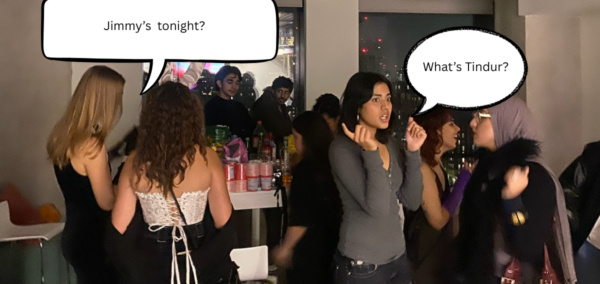
London universities warn against cheating on assessments with AI chatbots
‘Do not ask an AI chatbot to write your assessments for you,’ Queen Mary wrote to students
The recent advances in AI chatbot technology have raised concerns amongst London universities about academic integrity.
Over the winter break, Queen Mary sent out an email warning students against using these tools to generate essays. It said: “Do not ask an AI chatbot to write your assessments for you. This would constitute plagiarism under the QMUL academic misconduct policy.”
This warning came after the release of ChatGPT, one of the most advanced AI-powered chatbots, late last year. One million people signed up to use it within five days of it launching.

An email sent by Queen Mary’s School of Politics and International Relations to students
Dr Thomas Lancaster, a computer scientist at Imperial College London, told The Guardian these new developments were a game changer in many ways.
He said: “It’s certainly a major turning point in education where universities have to make big changes.
“They have to adapt sooner rather than later to make sure that students are assessed fairly, that they all compete on a level playing field and that they still have the skills needed beyond university.
“There’s been technology around for several years that will generate text. The big change is that this technology is wrapped up in a very nice interface where you can interact with it, almost like speaking to another human. So, it makes it available to a lot of people.”
However, AI-powered chatbots are not flawless. When The London Tab asked ChatGPT to write an essay on globalisation, it cited real-looking but made-up sources with fake URLs that went nowhere.
Most Read
When questioned why it would give fake citations, it said the sources were “fictional examples that I generated based on my training data. I regret that it caused confusion.”

It turned out citations might be these bots’ Archilles’ heel
According to The Guardian, working groups have been set up in university departments to look into challenges from AI tools with the expectation that assessment methods will have to be updated in some modules. This is already being implemented at University College London, where the computer science department removed essay-based options from assessments.
Steps are also being taken to counter the risk of AI-generated essays. Turnitin, which is used by universities as an anti-plagiarism tool, have begun developing a tool to identify chatbot-written papers.
Related stories recommended by this writer:
• Queen Mary students ‘appalled’ by ‘incompetent’ outsourced marking
• Confirmed: UCU has announced all 18 strikes dates in February and March for London unis
• Here’s how the university strikes will impact you as London students



















